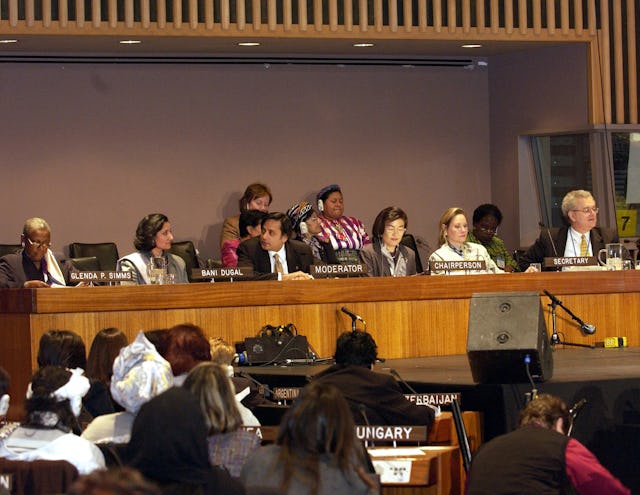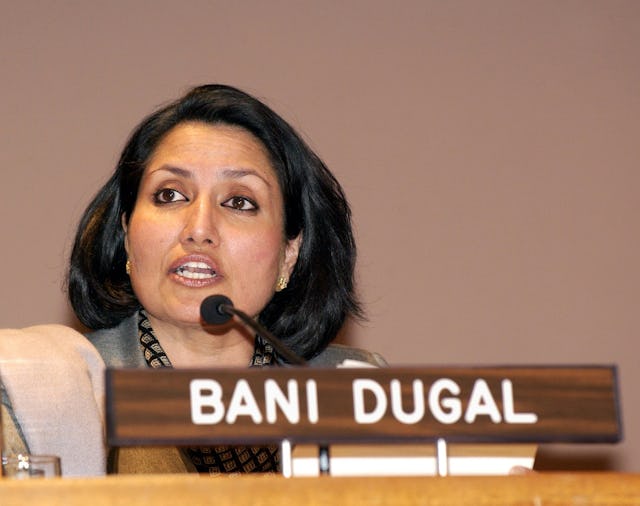Pledges on equality 'need to be honored'
UNITED NATIONS, United States — Governments should ensure that they act upon their commitments to advance the equality of women and men, said the principal representative of the Baha'i International Community to the United Nations, Bani Dugal, in a speech to commemorate International Women's Day.
"What is the meaning of stated commitments if no action results?" said Ms. Dugal, the chairperson of the NGO Committee at the UN on the Status of Women.
"States can no longer be permitted to shirk from their responsibilities on the pretext of domestic jurisdiction or cultural relativism. There are no grounds--moral, practical or biological--on which denial of women's rights can be justified," Ms. Dugal said.
"The consequences of inaction and continuing discrimination against fully half of the world's population are an affront to human dignity and a disavowal of the very principles of the United Nations," she said.
Ms. Dugal was speaking on 4 March 2005 at the invitation of the United Nations Commission on the Status of Women. She shared the dais with a roster of notables in the field of women's rights, including Nobel Prize winners Wangari Maathai of Kenya and Rigoberta Menchu Tum of Guatemala.
"The full equality of men and women is not the end goal," said Ms. Dugal. "It is a prerequisite for the very ends the United Nations was created to serve. That global peace and security are not possible without women is a truth we can no longer deny. As a global community, we have the means; we have made the plans, let us not be afraid to try."
Ms. Dugal said the UN had given the worldwide women's movement a "unique space" in a series of conferences to address women's rights--the 1995 World Conference for Women in Beijing, for example, was critical in helping women reach for full equality.
"It established clear standards and stated unequivocally that women's rights are human rights and that meeting these rights is central to every nation's progress in development and democracy," said Ms. Dugal.
It is important, however, for those governments that signed the Beijing Declaration and Platform for Action to ensure those commitments are acted on, she said.
Ms. Dugal also stressed the importance of partnership with men and boys, and their education, in the advancement of women. "Until they themselves refuse to accept laws and practices that discriminate and demean their daughters, sisters, wives, and mothers, nothing will change," said Ms. Dugal.
Angela King, who organized the 23rd Special Session of the General Assembly in 2000, known as Beijing +5 for its review of the 1995 conference, posed a list of questions relating to implementation of those commitments: Why are ways to implement government commitments not fully funded? Why are so few women at the peace table? Why are stereotypes of women's roles so hard to change?
"When we can answer all these questions then we will know why implementation is so slow," said Ms. King. "When we find what strategies to put in place then real implementation will be underway."
Ms. King's successor in the position of assistant secretary-general and special adviser on gender issues and advancement of women, Rachel Mayanja, called for "more male gender specialists and more strategic alliances with young women and men."
"In the last 30 years, men have gone to the moon and back, yet women are still at the same place they were, that is trying to sensitize the world to the unwarranted and unacceptable marginalization of women which deprives them of their human rights," Ms. Mayanja said.
Report by Veronica Shoffstall.
For more information on the speeches of the participants see http://www.un.org/News/Press/docs/2005/wom1495.doc.htm.

